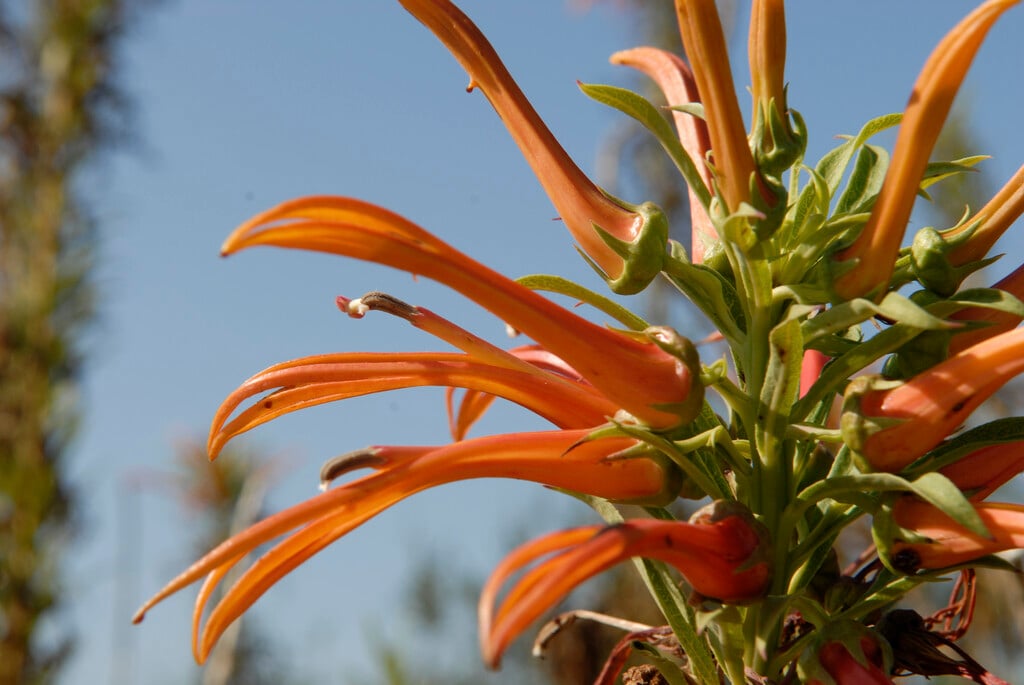Lobelia excelsa
devil's tobacco
A sparsely branched, evergreen shrub to 1.5m, with dark, upright stems bearing whorls of bright or greyish-green leaves. In summer bears terminal spikes of orange-red, tubular flowers up to 8cm long, very attractive to hummingbirds in its native Chile

Buy this plant
Size
Ultimate height
1–1.5 metresTime to ultimate height
2–5 yearsUltimate spread
1–1.5 metresGrowing conditions
Moisture
Moist but well–drained, Well–drainedpH
Acid, Alkaline, NeutralColour & scent
| Stem | Flower | Foliage | Fruit | |
| Spring | Green | |||
|---|---|---|---|---|
| Summer | Red | Green | ||
| Autumn | Green | |||
| Winter | Green |
Position
- Full sun
Aspect
South–facing or West–facing
Exposure
ShelteredDrought resistance
Yes Hardiness
H3Botanical details
- Family
- Campanulaceae
- Native to GB / Ireland
- No
- Foliage
- Evergreen
- Habit
- Bushy
- Potentially harmful
- Harmful if eaten, skin irritant. Wear gloves and other protective equipment when handling Wear gloves and other protective equipment when handling. Pets: Harmful if eaten, skin irritant. For further information and contact numbers regarding pets, see the HTA guide to potentially harmful plants
- Genus
Lobelia can be annuals, perennials or shrubs, with simple leaves and showy 2-lipped flowers that may be solitary or in racemes or panicles
- Name status
Correct
- Plant range
- China
How to grow
Cultivation
Grow in fertile, well-drained soil in a sunny, sheltered position with little or no frost
Propagation
Propagate by seed
Suggested planting locations and garden types
- City and courtyard gardens
- Sub-tropical
- Flower borders and beds
- Wall side borders
Pruning
No pruning required
Pests
May be susceptible to slugs
Diseases
Generally disease-free
Get involved
The RHS is the UK’s gardening charity, helping people and plants to grow - nurturing a healthier, happier world, one person and one plant at a time.